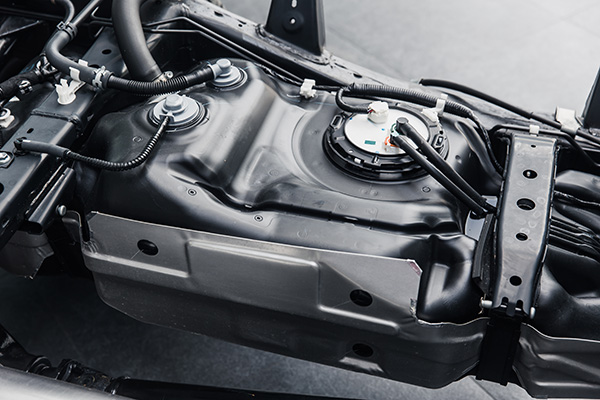
Do you often drive on the road, watching that fuel gauge needle inch closer and closer to empty, hoping to squeeze out just a few more miles before the next gas station? But what happens when you actually let your fuel tank run dry? It’s easy to dismiss the idea as a minor inconvenience, but running out of fuel can have serious consequences for your car. Let’s explore what really happens when you let your tank go empty and why it's a situation you should try to avoid.
Damage to the Fuel Pump
Your car's fuel pump relies on gasoline not just for fuel but for cooling and lubrication. When you run out of gas, the pump starts pulling in air, which can cause it to overheat. Over time, this can lead to fuel pump failure. Unfortunately, replacing a fuel pump is neither quick nor cheap. A malfunctioning pump means your car won’t be able to get fuel from the tank to the engine, leaving you with a car that won’t start even after filling up the tank.
Running your tank consistently low can also increase wear and tear on the pump, even if you don’t completely run out of gas. So, while it may seem harmless to push your fuel limits, the long-term effects can be more costly than simply refilling the tank when it’s needed.
Clogged Fuel Filters or Injectors
Another consequence of running your tank dry is the potential for dirt, debris, and sediment that naturally accumulates in your fuel tank to be pulled into the fuel system. Normally, the fuel filter catches these particles, preventing them from reaching the engine. But when you’re running on fumes, the pump can pull up sediment from the bottom of the tank, leading to clogged fuel filters and injectors.
Clogged fuel filters restrict the flow of gas to the engine, affecting your car’s performance. You may notice your car struggling to start, running rough, or lacking power. In the worst case, clogged injectors can lead to engine misfires and a need for professional cleaning or replacement.
Air in the Fuel Lines
When your fuel tank runs dry, air can enter the fuel lines, and this can cause a variety of issues. Air pockets in the fuel system prevent gasoline from reaching the engine efficiently, leading to starting issues, rough idling, or even stalling. Purging air from the fuel lines can be a tedious process, and in some cases, you may need professional help to get your car running properly again.
Catalytic Converter Damage
Your car’s catalytic converter is designed to reduce harmful emissions by converting toxic gases into less harmful substances. However, running out of fuel can create conditions where unburned fuel gets into the exhaust system, causing the converter to overheat. A damaged catalytic converter can result in decreased fuel efficiency, poor engine performance, and in some cases, costly repairs.
Sudden Stalling Poses Safety Risks
Aside from mechanical damage, letting your fuel tank run dry can be dangerous, depending on where it happens. Stalling in the middle of traffic, on a highway, or in a remote area can leave you in a vulnerable and unsafe situation. You’re also at risk of being stranded, which is an inconvenience no one enjoys. Keeping your tank at a reasonable level is not only about protecting your car—it’s also about protecting yourself and others on the road.
It’s Not Worth the Risk
Given the potential problems that can arise from running your fuel tank dry, it’s clear that it’s not worth the risk. While it’s tempting to wait until the last possible moment to refill, doing so consistently can cause long-term damage to your car’s fuel system and other components. Even if you’re in a rush, taking the extra time to fill up your tank could save you hundreds of dollars in repairs later down the line.
Modern cars have warning systems, such as low-fuel lights or digital readouts, designed to give you ample time to find a gas station. Pay attention to these signals and refuel as soon as possible.
Don’t wait for your car to stall! For a thorough inspection of your fuel system and advice on proper maintenance, visit Complete Automotive Repair Specialists. Schedule an appointment with our team of professionals today!